6 Pros and Cons of the Islanders Hiring Patrick Roy as the Team's New Head Coach
6 Pros and Cons of the Islanders Hiring Patrick Roy as the Team's New Head Coach
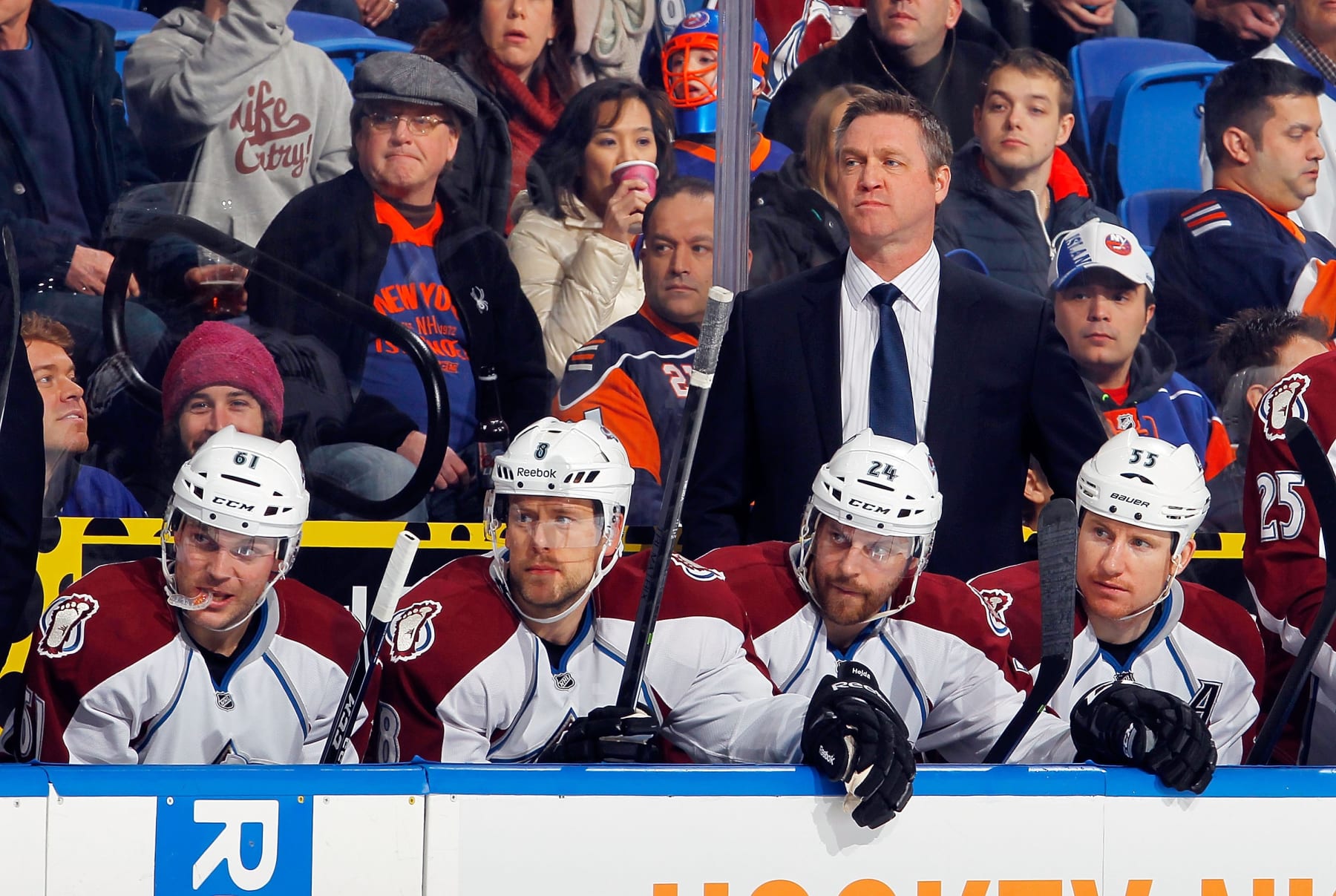
If you were sure this sports weekend was reserved for playoff football and a combat sports pay-per-view event, you've clearly never met Lou Lamoriello.
The veteran NHL executive has long been known for taking big swings when it comes to trades, signings and other transactions, and the New York Islanders general manager added another line to that resume on Saturday when he hired Patrick Roy to replace the fired Lane Lambert as the team's head coach.
He is the 18th man to lead the team since Al Arbour stepped down in 1986 after a remarkable run of five consecutive Stanley Cup Finals appearances and four titles in the early 1980s. Arbour returned after a two-year absence to coach six more seasons before retiring in 1994.
The team has not reached the championship round since 1984 and Lambert was 61-46-20 in a season-and-a-half after taking over from Barry Trotz in 2022. The Islanders reached the playoffs after the 2022-23 season but were ousted in six games by the Carolina Hurricanes.
The Roy hire was instantly described as "stunning" and "shocking" and it immediately prompted the B/R hockey team to assess it and deliver a list of pros and cons. Take a look at what we came up with and drop a thought of your own in the comments.
Pro: Instant Credibility
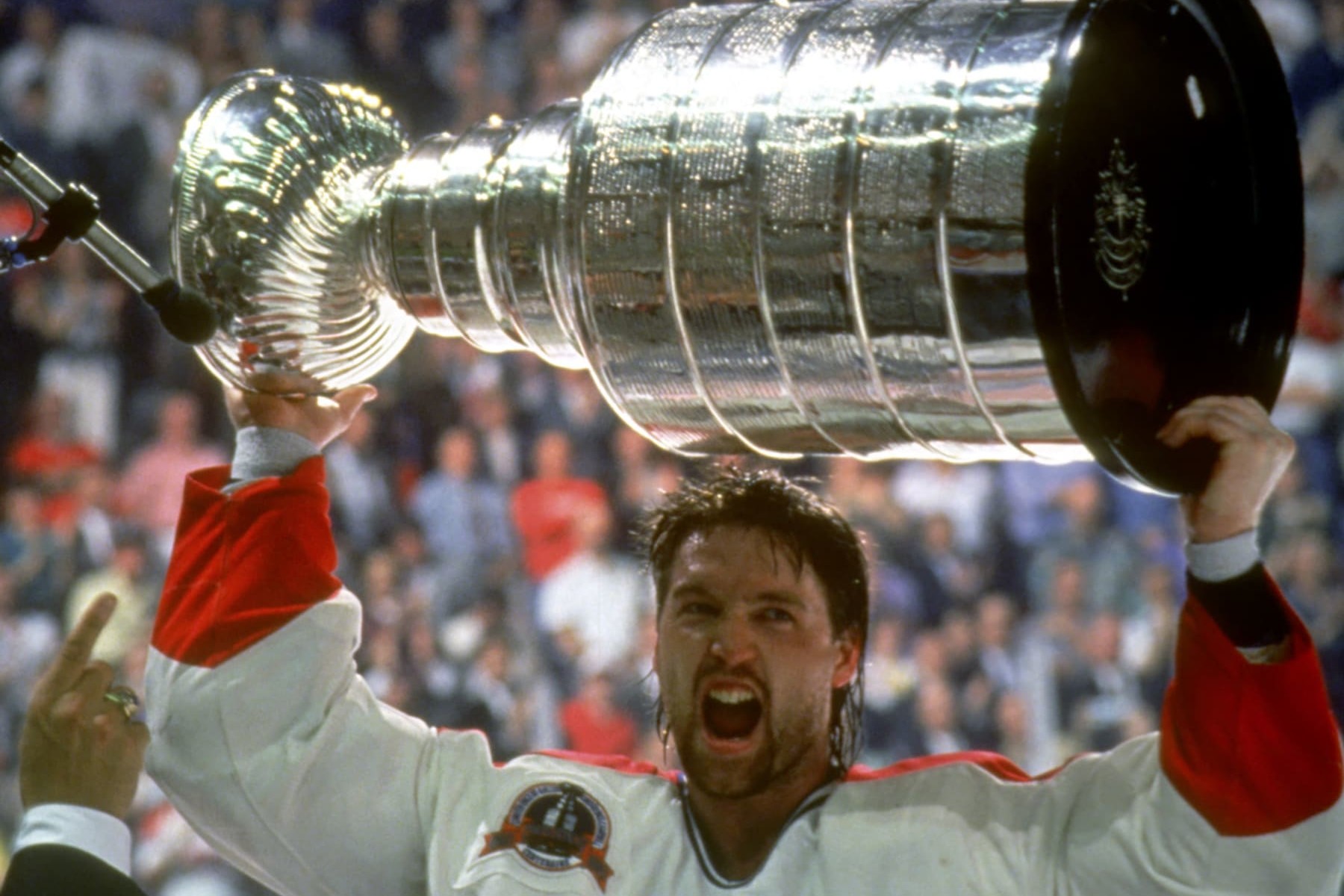
Though he's 58 years old, last played in 2003 and hasn't coached a game in the league since 2016, Roy will be able to walk into the locker room with something on a level that Lambert, despite a playing career that touched six NHL seasons with three teams, never could.
Credibility. Of the instant variety.
All he needs to do is prop up a table and spread out a few trinkets from his playing days, namely four Stanley Cup rings, three Vezina trophies and three Conn Smythe trophies.
And that's not to mention the Hall of Fame vest he slid on in 2006.
Lamoriello could have hired an astute X's-and-O's guy or a veteran apprentice to a successful coach. But if he wanted a guy who'd command the attention of a room full of players long on skill but short on accomplishment, getting someone with street cred was the mission.
An unconventional move? Yes.
But a mission, at least on appearances, accomplished.
Pro: Coaching Acumen
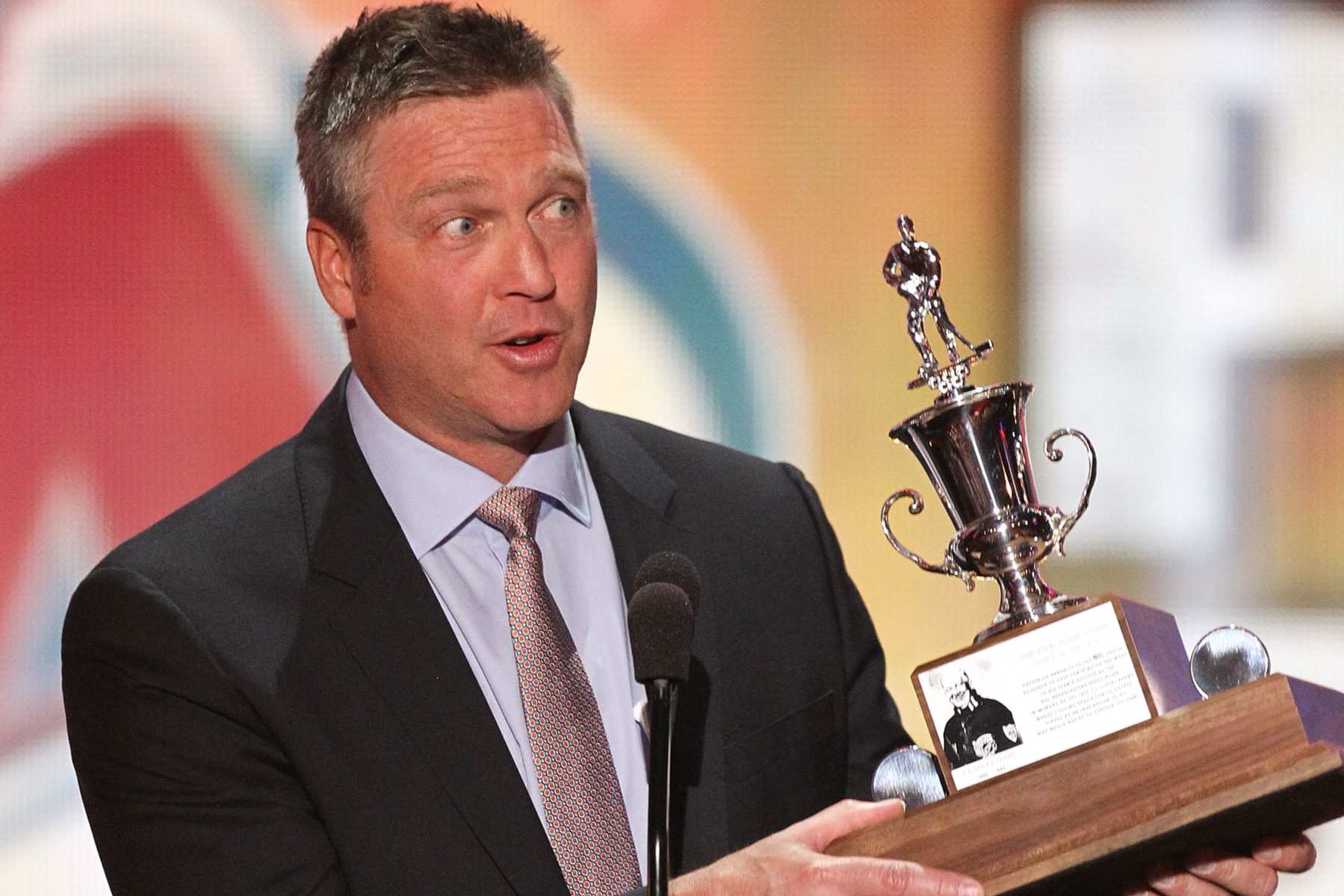
Lest you think Roy's hire is solely based on stellar play, think again.
A popular choice as the league's all-time best goaltender, the Quebec City native has been particularly successful behind the bench both with the QMJHL's Quebec Remparts and the NHL's Colorado Avalanche since shortly after his playing days.
He took over the Remparts as owner, GM and ultimately coach in 2005, won the Memorial Cup the following spring and never won fewer than 38 (of 70) games while finishing first four times in eight seasons before moving up to take over as coach and VP of hockey operations of the Avalanche in 2013.
He made Nathan MacKinnon his first draft pick 38 days later and was a huge success during the 2013-14 season, earning the Jack Adams Award as the league's top coach as Colorado vaulted from fifth place to first and reached the playoffs for the first time in four years.
Consecutive misses the next two seasons helped end his run in Denver, but he returned to the Remparts and was soon back to winning ways, reaching first place with a 51-win season in 2021-22 and earning a second Memorial Cup after a 53-win run in 2022-23.
It's making immediate news based on splash, but there aren't many guys Lamoriello could have picked who've compiled coaching resumes any better than Roy's.
Con: Volatility
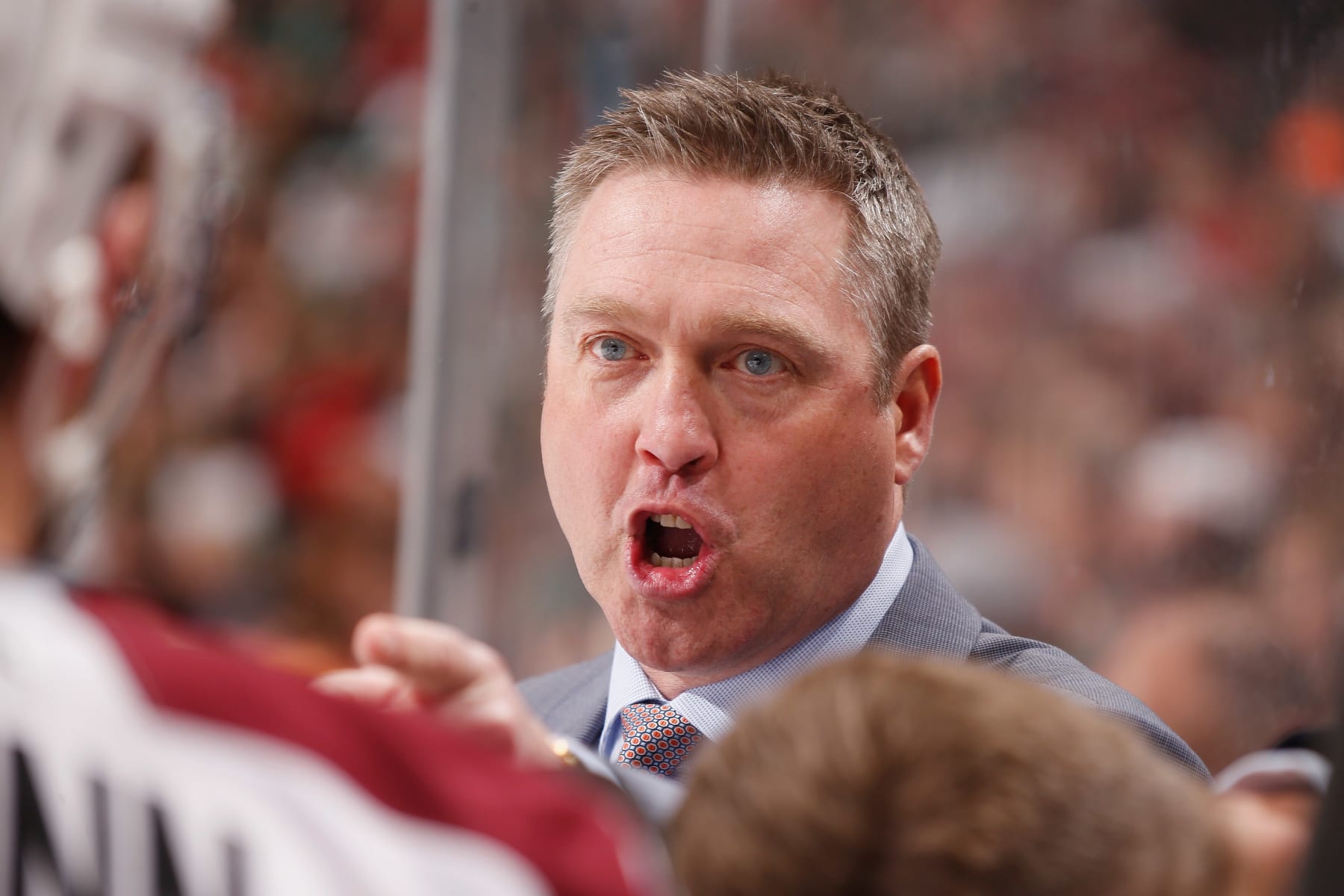
OK, let's not pretend it's all sweetness and light.
Though Roy was a stellar player and has been a pretty good coach, too, there are other words that could accurately be used to describe him, particularly his demeanor.
We'll go with a diplomatic option here and label him, well...volatile.
His playing days in Montreal ended after a high-profile dispute with coach Mario Tremblay in 1995, and he went at it in the media with Chicago's Jeremy Roenick during the playoffs the following spring, replying to a comment about a breakaway goal by saying "I can't really hear what Jeremy says, because I've got my two Stanley Cup rings plugging my ears."
Goalie fights with Mike Vernon and Chris Osgood are the stuff of YouTube legend, as is a scrape between him and Anaheim coach Bruce Boudreau as an on-ice scrum erupted at the end of his initial game as coach of the Avalanche in 2013. Separate incidents with the Remparts involving his sons Jonathan and Frederick yielded suspensions for Roy and both sons and further illustrate his penchant for working the margins of conduct.
One thing is certain: No matter the results with Roy on Long Island, it won't be boring.
Con: Eastern Excellence
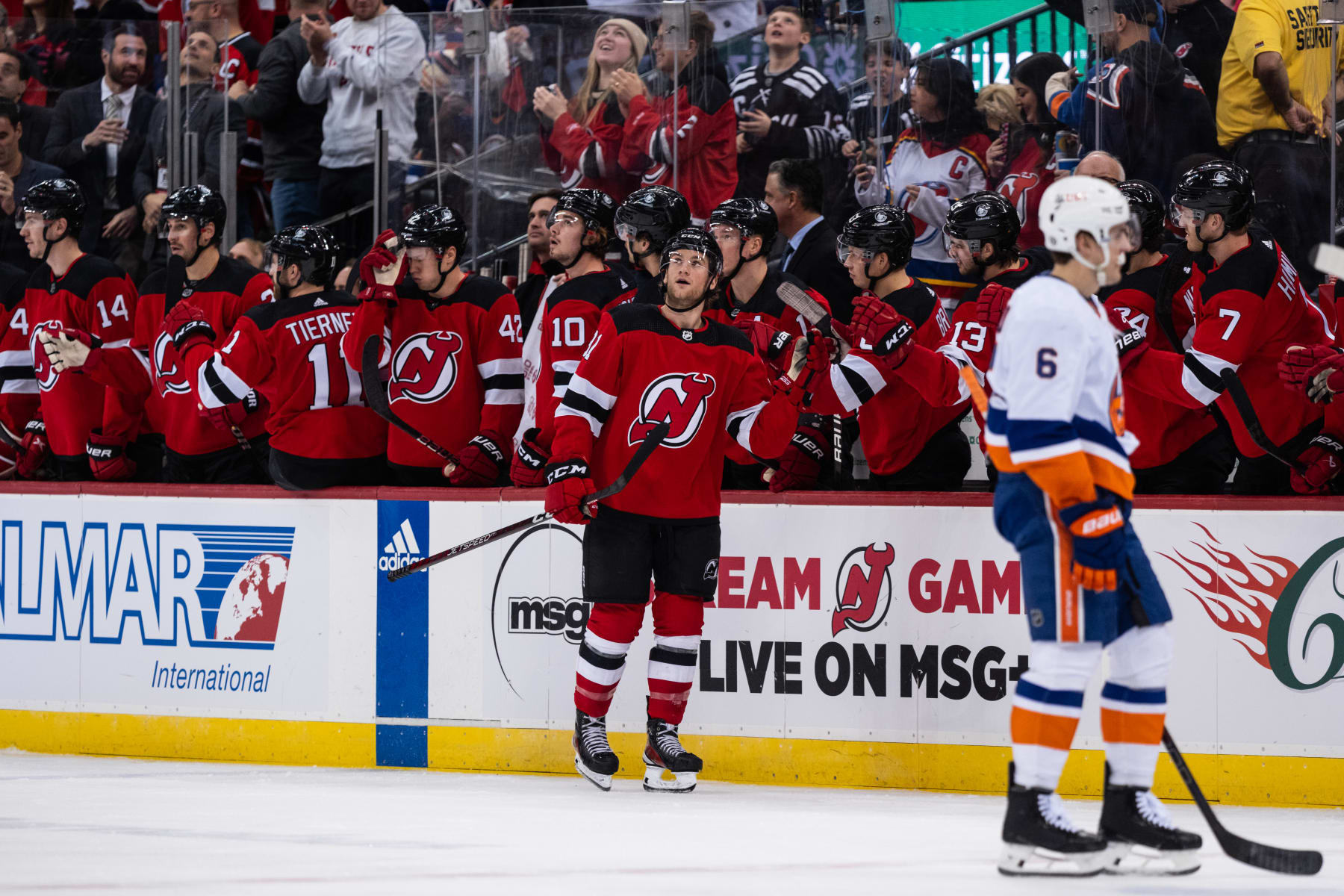
In the end, it may not matter.
Roy may indeed arrive on Long Island and galvanize the locker room and see it translate to an uptick on the ice for his team, which was 19-15-11 through 45 games with Lambert.
But once he looks at the standings and sees what he's up against, it'll register.
The Eastern Conference features a minefield of outstanding teams the Islanders will have to deal with, successfully, to climb out of the 11th-place hole they found themselves in through the start of Saturday night's games.
Though it's earned more than 54 percent of possible standings points, New York is still tied for fifth in an eight-team Metropolitan Division and would have to conceivably get past the New Jersey Devils, Washington Capitals and Detroit Red Wings just to grab the bottom rung of the playoff ladder in time for the postseason tournament in April.
Far higher on that ladder, incidentally, are teams that have won the past two Presidents' trophies (Florida and Boston) as well as three of the past four Eastern titles (Tampa Bay).
And that's assuming they can stay in front of a charging pack that includes the Pittsburgh Penguins (6-2-2), Montreal Canadiens (4-4-2) and Buffalo Sabres (6-4), each of whom has gained ground in the past 10 games while the Islanders have gone 2-6-2.
Pro: Change is Good
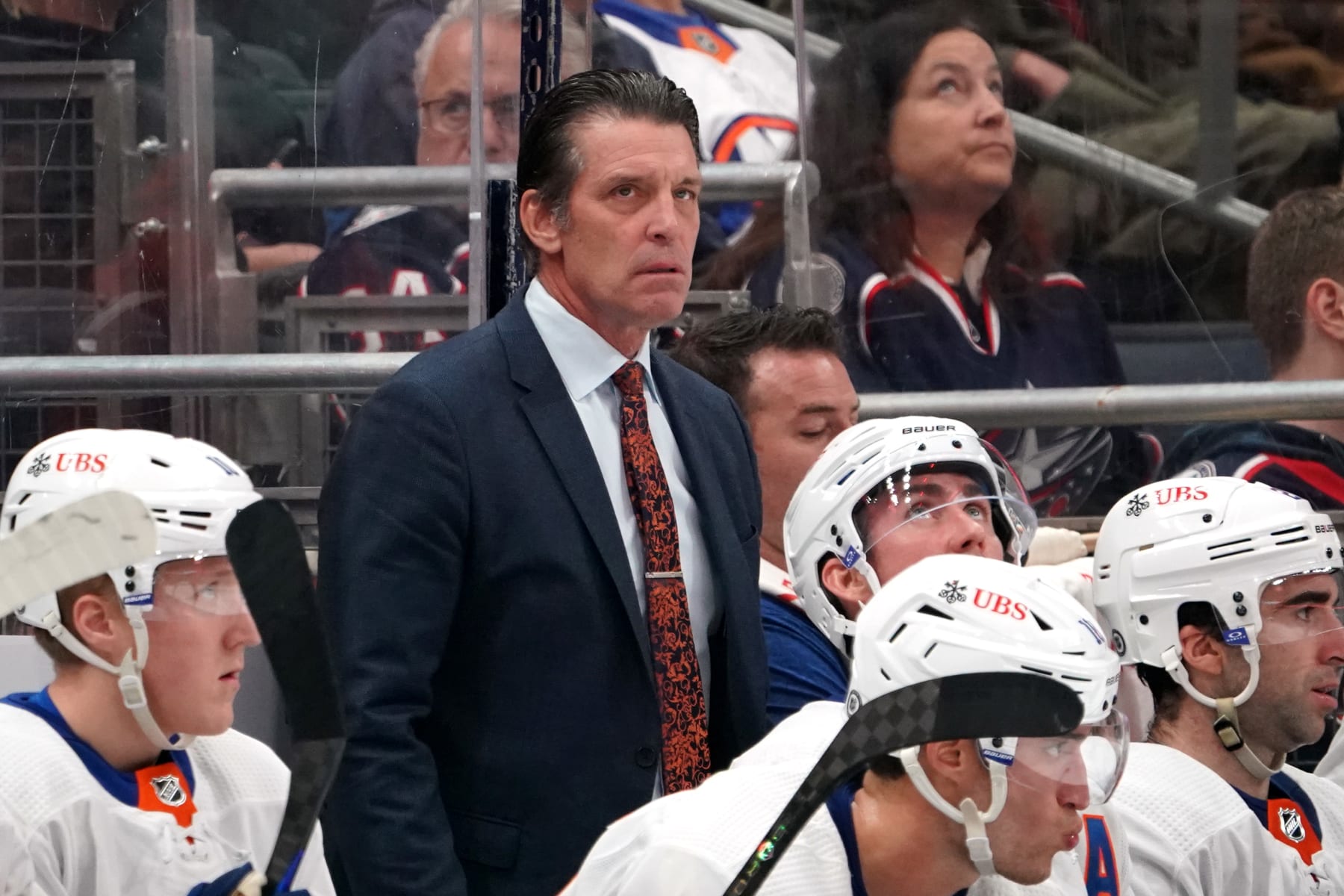
Lambert was by no means the worst coach in the NHL, and his .559 points percentage with the Islanders is far better than a lot of guys who remain gainfully employed today.
There's a good chance, then, that New York won't be his last coaching stop.
But, to quote protagonist Ted Mosby from the city-centric How I Met Your Mother sitcom of the early 2000s, "Sometimes things have to fall apart to make way for better things."
Roy, at least on reputation and fleeting evidence, could represent better things.
The Islanders have three players at or near point-per-game status, including the league's third-highest-scoring defenseman (Noah Dobson), and a goaltender who was a finalist for the Vezina Trophy last season and ultimately garnered three first-place votes before finishing second (Ilya Sorokin).
Nevertheless, as good a coach as Lambert is or may one day be, the results didn't match the production. A new boss in the locker room is usually good for a performance bump regardless of the situation he inherits, and some maintain that success for a longer haul.
Case in point, Craig Berube was a mid-season hire in St. Louis in 2018 and won the Stanley Cup seven months later. And just this season, Kris Knoblauch took over the Edmonton Oilers after they foundered to a 3-9-1 start—they've gone a league-best 22-6-0 since.
Given the players in the room, it seemed the right time for Lamoriello to take a risk.
Con: Changing Times
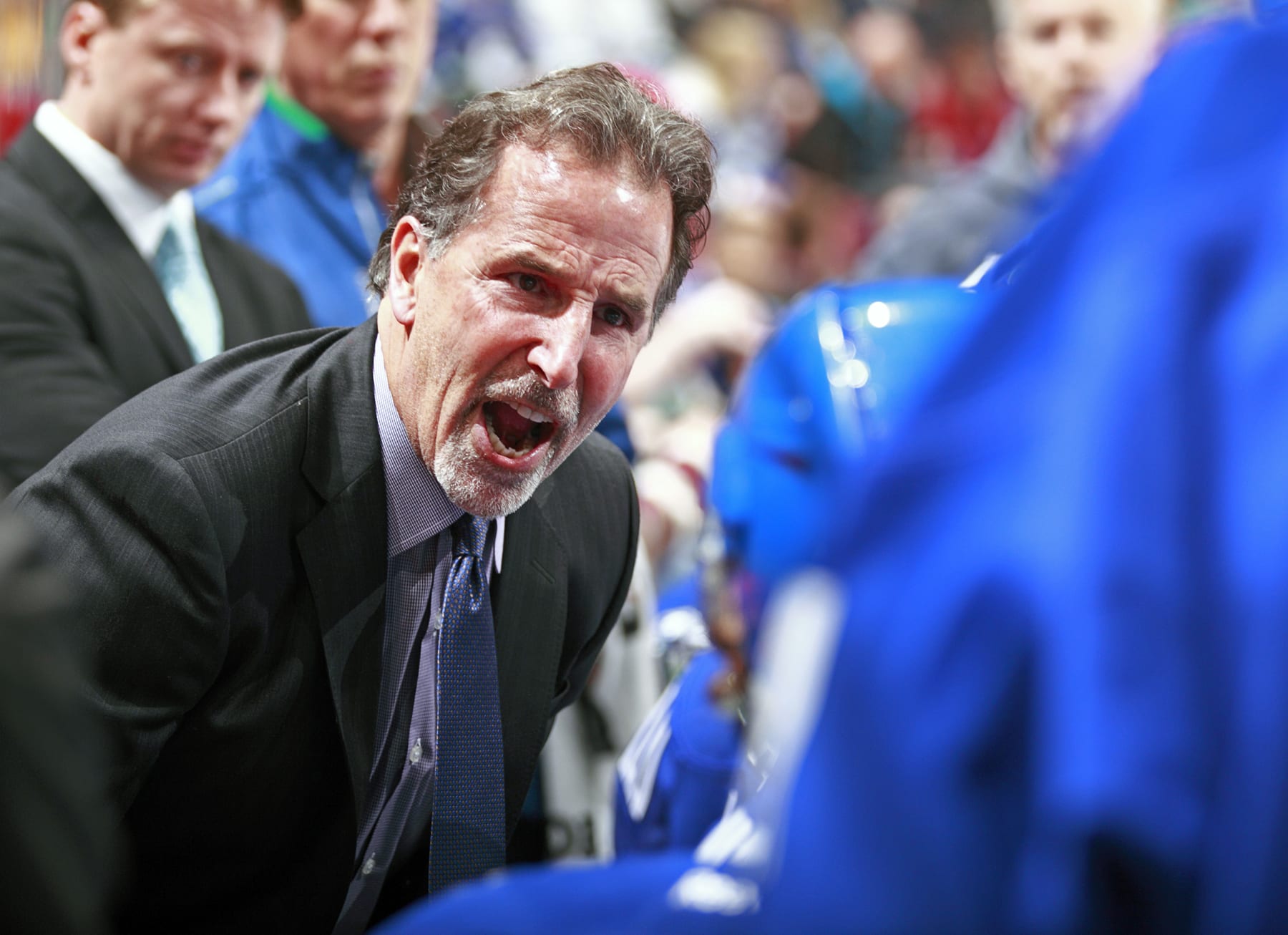
Father Time, as the old cliche goes, remains undefeated.
Playing styles change. Player personalities change. Coaching strategies change.
And let's face it, it's been a little while—and all those things have continued to occur—since the last time Roy stepped behind an NHL bench or addressed a team in a locker room.
Which begs the question, can he still do it? Will his approach still work?
Working with grown men (and multimillionaires) in the world's most elite league is not the same as doing the same job with teenagers still hoping for their big career break, so Roy will have to adapt his hard-nosed message for the new audience.
He claimed input (or a lack thereof) in personnel decisions led to his stepping down in Colorado after just three seasons, but it's hard to imagine the spotlight and the frustrations that come with it weren't at least partially responsible, too. Fiery coaches tend to burn hot and fade quickly, so Roy's M.O. is immediately on trial in the sport's biggest media market.
He may take a lesson from fellow firebrand John Tortorella, who's identifying these days as a (slightly) kinder and gentler version in Philadelphia of the guy who was fired after experiencing initial successes in Tampa Bay, New York (with the Rangers) and Vancouver.
The extent to which Roy does something similar may determine how long he lasts.
